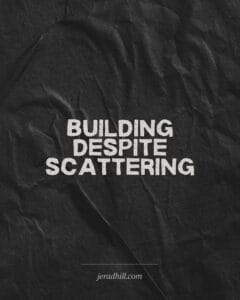Thinking more about the concept of running your family like a business, I realized that I run my family more like a non-profit.
Running your family like a non-profit rather than a business shifts the focus from profit, competition, and efficiency to mission-driven purpose, shared values, community support, and collective well-being. This approach aligns more naturally with the emotional and relational nature of family life and emphasizes service, empowerment, and sustainability.
Here’s how the two approaches differ:
Primary Goal:
- Business model: Profit, efficiency, productivity
- Non-profit model: Mission-driven purpose, shared values, and well-being
Focus:
- Business model: Outcomes, performance, roles
- Non-profit model: Relationships, empowerment, community support
Decision-making:
- Business model: Hierarchical, often top-down
- Non-profit model: Collaborative, inclusive, values-based
Accountability:
- Business model: To owners/shareholders
- Non-profit model: To family members and the collective mission
Flexibility:
- Business model: Often rigid, process-driven
- Non-profit model: Adaptive, compassionate, focused on sustainability
Emotional Dynamics:
- Business model: Can overlook emotional needs
- Non-profit model: Prioritizes emotional health and family voice
Long-term Vision:
- Business model: Growth and profitability
- Non-profit model: Legacy, stewardship, and intergenerational support
Why the non-profit model works better for families:
It centers the family mission and values above competitive success, much like non-profits prioritize their cause over profit margins. Our family’s “mission” isn’t to produce the highest-achieving kids or the most efficient household; it’s to raise people who are grounded in our values and equipped for life. It can be hard to identify the mission and purpose of your family. I have tried to write this out a handful of times, but ultimately, the purpose I am looking for is found in the Bible.
It encourages shared governance and accountability, where all members have a voice and contribute to the family’s well-being. This doesn’t mean kids make all the decisions, but their input matters, and they understand how they contribute to our family’s mission.
It promotes flexibility and compassion, recognizing that family dynamics require emotional sensitivity and adaptability rather than strict efficiency or control. When someone is struggling, we adjust our approach rather than demanding they meet the performance standard.
It fosters a sense of stewardship and legacy, focusing on nurturing relationships, supporting growth, and sustaining the family’s collective health and values over time.
Running your family like a non-profit emphasizes mission, values, emotional health, and collective empowerment rather than profit and rigid structure. This approach better respects the unique nature of family life and can lead to more meaningful, sustainable, and compassionate family dynamics. Plus, it simply sounds better 😊.
What would change if you started thinking about your family’s mission instead of your family’s performance?



